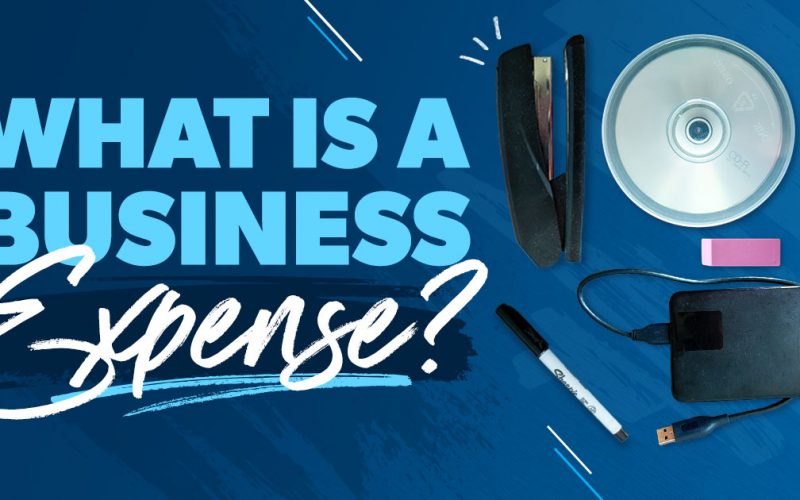Expenses are what we encounter if not on a daily basis. In fact, we spend money to make money However, when a business is spending more than what is coming in, then that’s a problem. So, this article will open your eyes to see the business expenses that are allowable, the one in the UK, the business expenses you get to experience as a self-employed, what business expenses are, and the list.
Business Expenses
Firstly, Business expenses are typical and necessary charges incurred by a business in order for it to function.
Secondly, they can be applicable to both small and large organizations. The income statement includes business expenses. Finally, to calculate a company’s taxable net income, business expenses are reduced from revenue on the income statement.
What are business expenses?
When a company earns more than it spends…that’s definitely a fantastic company.
Business expenses, often known as deductions, are costs caused as a result of routine business operations, regardless of the company’s size. Businesses must remove their expenses from their revenue to generate net income.
The List of Business Expenses
- Rent or mortgage payments
- Furniture, equipment, and machinery
- Office Supplies
- Advertising and marketing
- Website and software expenses
- Payroll (bonus, wages, or commission)
- Employee benefits (like health insurance)
- Taxes
- Business license and permission
- Bank fees and interest payment
- Training and education ( to enhance your workers’ skills)
Business expenses that are allowable
Allowable expenses are non-taxable business costs that are necessary for the operation of the business. Allowable expenses are not included in a company’s taxable profits. As a result, you do not pay tax on these expenses.
Below are the certain cost you can say it’s allowable in business expenses
- Marketing and advertising expenses
- Fees for credit card processing
- Employee education and training expenses
- Certain legal expenses
- Fees for licenses and regulations
- Wages paid to contract workers
- Employee benefit plans
- Rental of equipment
- Insurance premiums
- Interest has been paid
- Expenses and supplies for the office
- Costs of maintenance and repair
- Lease of an office
- Lastly, Utility business allowable expenses
When identifying allowable expenses, it is essential to distinguish between company or business costs and personal expenses, as private purchases cannot come in as allowable expenses.
Finally, If you utilize corporate funds to pay for a personal item, the cost should not be included when computing your annual allowable expenses.
Business Expenses For Self Employed
If you are self-employed, your business will have a variety of operating expenses. As long as they are allowable expenses, you can deduct some of these costs to calculate your taxable profit.
There are different rules for the self-employed. Any business expenses can be deducted from your pre-tax profits. You must record any item that you utilize for personal purposes.
Business Expenses for self-employed that are beneficial
#1.Home office
One of the most complicated is the home office deduction. In summary, the cost of any workspace you use frequently and exclusively for your business, regardless of whether you rent or own it, can be a home office expense.
In addition to the office space itself, the business percentage of deductible mortgage interest, home depreciation, utilities, homeowners insurance, and repairs paid during the year are all expenses you can deduct for your home office.
However, If your home office takes up 15% of your home space, for example, 15% of your monthly electricity expense is tax-deductible. Some of these deductions, such as mortgage interest and home depreciation, are only available to people who own their home office space rather than renting it.
Tips on how to calculate expenses as self-employed
As self-employed, You can calculate your home office expense in two ways
The standard method or The simplified method. And you don’t have to use the same method every year.
- The standard method
In the case of an audit, the standard method requires you to determine your real home office expenses and keep complete records.
- The simplified method
It allows you to multiply the rate by the square footage of your home office. However, to choose the simplified option, your home office must be less than 300 square feet in size, and you cannot claim depreciation or home-related itemized deductions.
So, If you’re short on time or can’t keep accurate records of your deductible home office expenses, the simplified alternative is a no-brainer. However, because the simple option is at $5 per square foot with a maximum of 300 square feet, the most you may deduct is $1,500.9.
Basically, If you want to ensure that you are claiming the maximum home office deduction available to you, you should calculate the deduction using both the standard and simplified methods. If you use the standard method, you must calculate the deduction on Expenses for Business Use of Your Home.
#2.Phone and Internet Bills
You can deduct the business portion of your phone, fax, and internet expenses whether or not you claim the home office deduction. The idea is to only deduct expenses that are directly relevant to your business. You could, for example, deduct the internet-related expenditures of hosting a business website
#3.Deductibles for Health Insurance
Normally, You can deduct all of your health, dental, and long-term care (LTC) insurance premiums if you are self-employed. pay your own health insurance premiums, and are not eligible to join in a plan through your spouse’s job.
You can also deduct premiums paid to provide coverage for your spouse, dependents, and children under the age of 27 at the end of the year, even if they aren’t dependents on your tax return. Calculate the deduction using the business Self-Employed Health Insurance expenses Worksheet.
#4. Meals
traveling for business, attending a business conference, or entertaining a client, lunch is a tax ductible business cost. Under the circumstances, the meal cannot be lavish or extravagant. And in the past, you could only deduct 50 percent of the actual cost of the meal if you kept your receipts, or 50 percent of the standard meal allowance if you kept records of the time, place, and business purpose of your travel but not your actual meal receipts.
#5.Travel
Furthermore, to be seen as a business trip, you must have a clear business goal planned before leaving home, and you must actually engage in business activities while on the road, such as discovering new customers, meeting with clients, or learning new skills directly connected to your firm.
Transportation to and from your trip (such as plane fee), transportation at your location (such as vehicle rental, Uber fare, or subway tickets), hotel, and meals are all deductible travel cost
You cannot deduct expensive or lavish charges, but you also do not have to choose the cheapest solutions available. Remember that you will be paying the majority of your travel expenses, not your fellow taxpayers, therefore it is in your best interest to make them modest.
Your business travel expenses are fully deductible, with the exception of meals, which are only 50% deductible.
Things get a lot more complex if your trip includes work and pleasure; in a brief, you can only deduct expenses linked to the business portion of your trip. For instance, If you take a business trip with your spouse (who does not work for you as an employee), you can only deduct the part of housing and transportation costs that you would have spent if you had traveled alone. Lastly, Don’t neglect to plan ahead of time for the business portion of your trip.
#6.Utilization of Vehicle
When you use your car for business purposes, you can deduct the costs of such trips. Keep meticulous records of the date, mileage, and purpose of each journey, and do not attempt to claim personal car trips as work car trips.
Using the standard mileage rate is the simplest option because it necessitates the least amount of record-keeping and calculation. Simply keep track of the business miles you drive and the dates you drive them. Then, multiply your annual business mileage total by the standard mileage rate. This is your tax-deductible expense.
To utilize the actual expense method, you must compute the percentage of business driving you accomplished over the course of the year, as well as the overall cost of operating your automobile, which includes depreciation, gas, oil changes, registration fees, repairs, and car insurance. Your deduction would be $300 if you spent $3,000 on car running expenses and utilized your car for business 10% of the time.
Subsequently, If you want to use the standard mileage rate on a car you own, you must do so within the first year the method is available for business use. In later years, you might choose to use either the standard mileage rate or switch to real expenses. If you are leasing a vehicle and want to use the standard mileage rate, you must do so for the standard lease duration.
As with the home office deduction, it may be worthwhile to calculate your deduction both ways so that you can claim the greater amount.
The UK Business Expenses
As much as UK business expenses cannot be changed, business owners want to make a profit. They do, however, want to ensure that the accounting accurately reflects not only the income but also the expenses. If you claim the right expenses, your earnings will be accurate, and your tax bill will be no more than what you are legally required to pay. The UK business expenses serve as a guide for both home-based and office-based firms. Furthermore, you will discover which UK business expenses or costs are permissible and which are not.
Expense Tracking Software: The Best Tools for Small Businesses
The right expense tracker simplifies the procedure and allows you to keep track of your company’s finances. Here are the expense tracking tools.
#1. Mint
Mint, a well-known personal spending tracker, is also a straightforward tool for small businesses and freelancers to track where their money is going. Moreover, It allows you to set budgets and goals within the app, as well as manage your credit score. Furthermore, you can access all of this information through an easy-to-read dashboard at any moment, so you always know where you stand.
#2. Excel
Excel spreadsheets are a tried-and-true tool for keeping track of your business expenses (for free). It’s not necessary to overthink it. Simply locate a solid Excel bookkeeping template and enter all of your costs once a week.
#3. Bench
Don’t you have time to keep track of your expenses? The bench can take it from you. We handle all of your bookkeeping for you, importing, evaluating, and classifying your expenses on a monthly basis. Most importantly, accounting administration is handled with attention by Bench. And if you have any questions, your team is only a message away.
What Is the Small Business’s Biggest Outlay?
Any business executive is aware that one of the major expenses is labor. Up to 70% of all corporate expenses can be attributed to labor, which includes employee salaries, benefits, payroll, and other relevant taxes.
Which Personal Costs Can I Deduct From My Business?
Personal, living, and family costs are typically not allowable deductions. However, divide the entire cost between the business and personal portions of an expense if it pertains to something that is used in both business and personal contexts. You may write off the business portion.
What Are the Top Three Costs?
The top three household expenses are typically those for housing, transportation, and food. These three areas can consume a sizable portion of your income. Particularly, housing costs are increasing daily.
Is My Internet Service Fee Admissible as a Business Expense?
If you must use your computer, phone, Internet service, software, or even some interesting tech gadgetry to run your business, you may be able to deduct their cost from your taxes.
What Occurs if You Are Audited but Lack the Necessary Receipts?
If an audit occurs and you lack receipts or other supporting documentation? Therefore, the Internal Revenue Service might not accept your cost deductions. This frequently results in the IRS deducting your gross income before determining your tax bracket.
Do I Need To Keep a Record of Every Business Expense?
A business tax receipt is what? The IRS requires that you maintain supporting documentation that details the items you purchased, the price you paid, and the date you made the purchase if you intend to deduct business costs on your tax return.
Can Self-employed People Deduct Food Expenses?
Unfortunately, most independent contractors cannot deduct their food expenses. An expense must have a proper business purpose in order to be deducted from taxes. Other than if you’re a food vendor of some sort, it’s doubtful that groceries have anything to do with your business. Nevertheless, business meals may be deducted.
Can Expenses Incur for Business Be Carried Over?
If your company has a net operating loss (NOL), more deductions than it is eligible for, and a nonrefundable credit it qualifies for that is greater than the tax it owes each year, it may be able to take a carryforward. Taxes are not applied to business costs that are deductible. Some company expenses, such as demolition, cannot be deducted.
Conclusion
All of the things covered in this article including the UK business expenses necessitate serious attention, You may be missing out on legitimate expenses. As a result, it is important to obtain expert assistance.
Business Expenses FAQ’s
What are examples of business expenses?
- Rent or mortgage payments.
- Office equipment.
- Payroll costs (e.g., wages, benefits, and taxes)
- Advertising and marketing.
- Utilities.
- Small business insurance.
- Depreciation.
- Taxes.
What are acceptable business expenses?
All of the basic expenses necessary to run a business are generally tax-deductible, including office rent, salaries, equipment and supplies, telephone and utility costs, legal and accounting services, professional dues, and subscriptions to business publications.
How do you list business expenses?
- Rent or mortgage payments.
- Home office costs.
- Utilities.
- Furniture, equipment, and machinery.
- Office supplies.
- Advertising and marketing.
- Website and software expenses.
- Entertainment.
- Profit and Loss Statement Explained!!! How to Read & Create P&L Statement
- BAD DEBT EXPENSE – Definition, Estimation and Calculation
- Form 8396: Meaning, Instructions And Where to Get The Form
- Small Business Accounting UK: Best 2022 Practices & All You Need
- PRINCIPAL PLACE OF BUSINESS LLC: Definition & Examples
- Public Liability Insurance For Self Employed: All You Need






